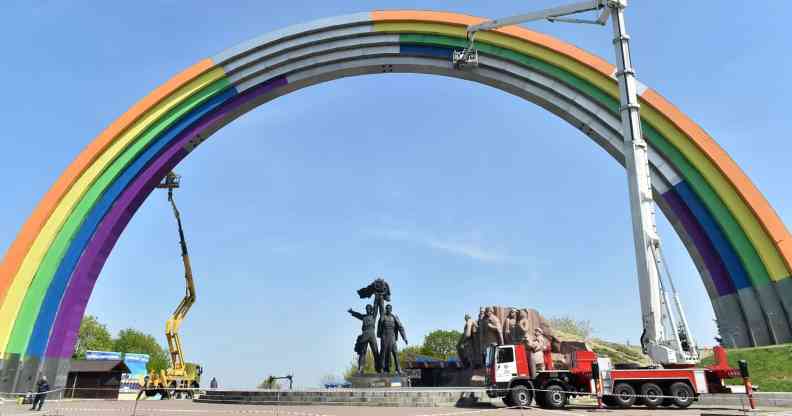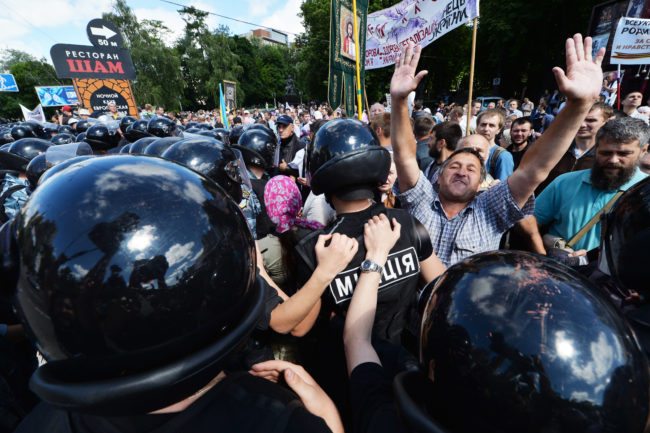There are just eight safe house spaces for LGBT people in Ukraine

It may be legal to be gay in Ukraine, but the country still needs to take significant strides in accepting its LGBT citizens.
While queer Ukrainians are only protected by a thin veil of legislation, they also still face the grave threat of discrimination, with several LGBT people ostracised from their families and violently attacked for their sexuality and identity – and are attempting to secure their freedoms in the face of a four-year conflict.
In a bid to help, gay rights group Insight launched a shelter in 2014 to help LGBT people in need – but the emergency accommodation only has room to take eight people in at a time.
The shelter, which provides a lifeline for LGBT people, offering food, clothing, medicines, a travel card, as well as legal and psychological help during their stay, is a much-needed service in the country.

Kyiv, Ukraine. 2013 (SERGEI SUPINSKY/AFP/Getty Images)
“It’s a great opportunity for people to adapt and start a new life. You don’t have to worry about finding work without knowing where to sleep,” said Pavel, a 48-year-old resident to Reuters.
Another resident, Yevhenii Kalashnyk, said that he had no choice but to flee to the shelter after his parents saw a picture of him kissing another man on Instagram.
“She [Kalashnyk’s mother] asked: ‘Are you gay?’. I said ‘yes’ … Then she started saying very bad things,” he said to the news agency.
The shelter, which was originally opened to help those fleeing conflict in the eastern part of the country in 2014, has now opened itself up to other regions that are caught in Ukraine’s current unrest.
More 10,000 people have been killed and 1.6 million forced from their homes during the conflict, which erupted in April 2014, soon after Russia annexed Ukraine’s Crimea peninsula, leading regions Luhansk and Donetsk to rebel against the pro-Western Kyiv government.
Hundreds of prisoners were exchanged between the regions over the Christmas period, which the UK government regarded as “a welcome step towards progress.”
230 people were sent to rebel-held areas in return for 74 prisoners who had been held by pro-Russia rebels, which is the largest swap in fifteen months.

